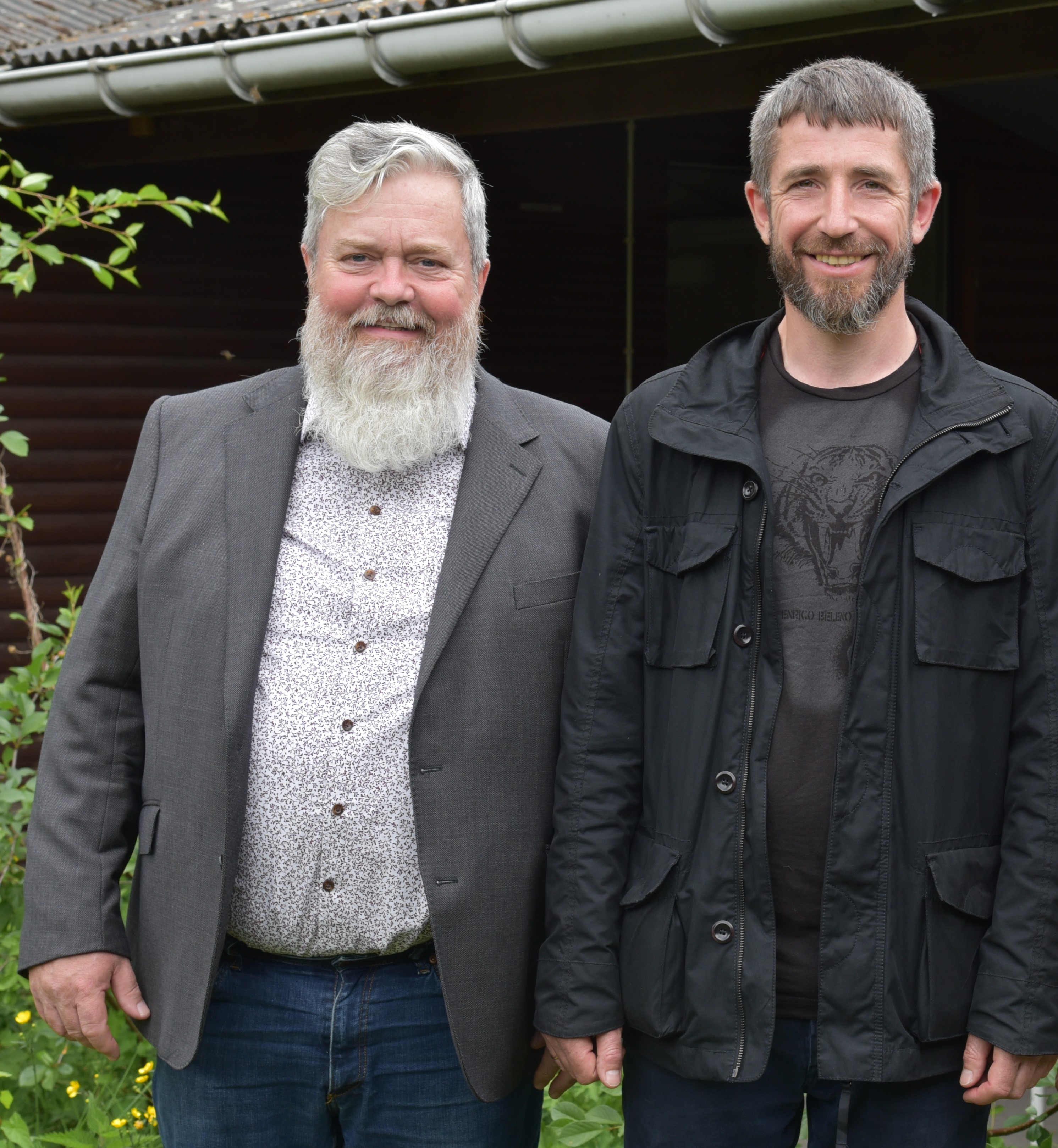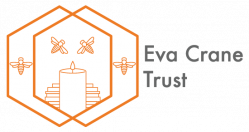ECT supports Ukrainian Refugee
ECT supports Ukrainian Refugee

Photo: ECT Trustee Prof. Dirk de Graaf with Olexiy Lyamtsev.
The Eva Crane Trust is collaborating with Ghent University, Faculty of Science to support an employment project for a Ukrainian refugee. The role will involve making an inventory of the Historical Collection of the Eva Crane Trust (recently donated from IBRA), as well as partly taking care of the bee colonies at the Honeybee Valley expertise centre of the Faculty of Science under the supervision of Professor Dirk de Graaf.
Olexiy Lyamtsev had fled the war in Ukraine with his wife and three children and tried to find shelter and, if possible, work along the way. Because he had worked as an Export Sales Advisor in a company in Waregem, Belgium from 2007-2013, he did have some contacts in Flanders. During that period, he also followed a starter course for beekeepers at the beekeepers' association De Kasteelbie van Ingelmunster.
Having returned to the area and receiving positive support to use his beekeeping skills Prof. de Graaf said, 'There are currently several projects on the honeybee going on here and we are sometimes short of hands. Moreover, we wanted to contribute to the reception of Ukrainian refugees’.
He will also produce an inventory of the unique collection of beekeeping objects for the Eva Crane Trust, which is co-financing the project. This unique historical collection was gathered together by Dr Eva Crane, over several decades and from across all corners of the world. Until recently it was housed in the Apiculture Museum in Kalmthout. 'Olexiy has several diplomas and has a wealth of experience in business management. In that sense, he is clearly overqualified for this job. But he took the offered opportunity with both hands. We hope that while working on the bees he can forget the reality of the war for a while,' said Dirk de Graaf.
ECT Chairman, Richard Jones extends the hand of friendship and says:
“Every evening the horrors and atrocities of the war in Ukraine are brought to us on the television news. For many of us involved with bees the Ukrainian situation is probably more real than the other scenes of human heartache which seem to fill the news. Many of us remember the welcome and hospitality we received when visiting Kyiv for Apimondia in 2013. Therefore, I am very pleased that, in a small way, the Eva Crane Trust can show our support for those bee scientists and beekeepers in that country of turmoil and desperation by extending the hand of friendship, even if it is just to one, Olexiy. He will bring yet another international dimension to the historical collection amassed by Dr Crane on her travels and I know she would have approved whole-heartedly”.
